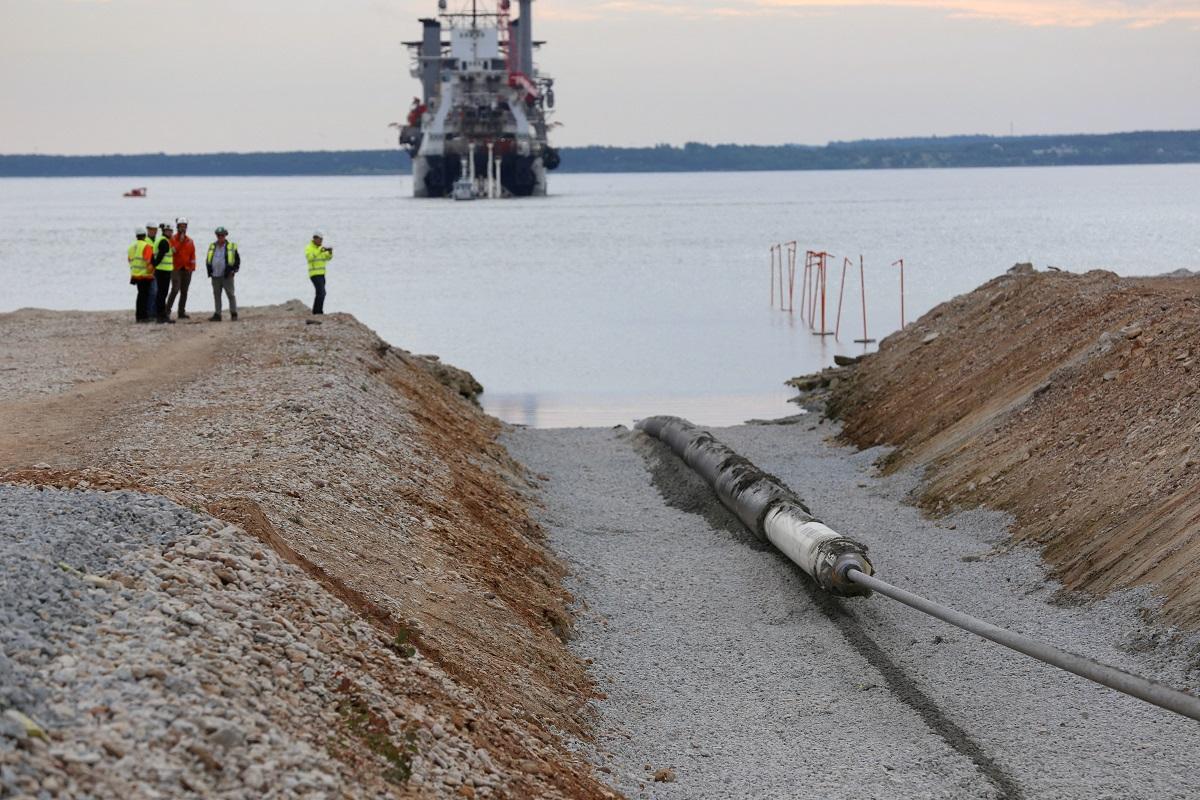NATO to respond if Baltic Sea pipeline damage deliberate —alliance chief

HELSINKI/BRUSSELS — NATO will discuss damage to a gas pipeline and data cable running between member states Finland and Estonia, and will mount a "determined" response if the cause is proven to be a deliberate attack, NATO Secretary General Jens Stoltenberg said on Wednesday.
The damage on the Balticconnector pipeline and telecommunications cable was confirmed on Tuesday after one of the two pipeline operators, Finland's Gasgrid, noted a drop in pressure and possible leak on Sunday night during a storm.
On Tuesday, Helsinki said the damage was likely caused by "outside activity" and the cause was being investigated, stoking concern over regional energy security and pushing gas prices higher.
"The important thing now is to establish what happened and how this could happen," Stoltenberg told reporters in Brussels ahead of a meeting of the military alliance.
"If it is proven to be a deliberate attack on NATO-critical infrastructure then this will be, of course, serious, but it will also be met by a united and determined response from NATO."
The pipeline, between Inkoo in Finland and Paldiski in Estonia, crosses the Gulf of Finland, part of the Baltic Sea which stretches eastward into Russian waters and ends at the port of St Petersburg.
The Kremlin described the incident as "disturbing" and said it was awaiting further information.
Russia's Nord Stream pipelines were damaged by an attack in the Baltic Sea, Kremlin spokesman Dmitry Peskov said at a regular news briefing on Wednesday, referring to an incident in September 2022.
Sunday's incident came about a year after the larger Nord Stream gas pipelines, which cross the Baltic Sea between Russia and Germany, were damaged by explosions that authorities said were caused by sabotage.
Henri Vanhanen, research fellow at the Finnish Institute for International Affairs, said the central issue would be how NATO would react if there was evidence of a state actor behind the Baltic Sea pipeline damage.
"I think the big question in the long term is that do we have a clear set of potential countermeasures for such [sabotage] activities? What is the deterrence?" he said.
The Finnish government said preparedness levels had been raised at critical infrastructure, as officials including President Sauli Niinisto were given a situational overview at an extraordinary meeting on Wednesday.
Pipeline 'pulled from one side'
"It can clearly be seen that these damages are caused by quite heavy force," Estonian Defence Minister Hanno Pevkur told Reuters, adding that investigators were not ruling anything out, but possibilities included "mechanical impact or mechanical destruction."
The pipeline and telecoms cable run parallel at a "significant" distance from each other, according to the cable operator, Elisa.
The damage to the pipeline was believed to have taken place in Finnish waters, while the cable breach was in Estonian waters, Finnish authorities have said.
Finnish investigators have said the incidents occurred "within the same time frame" early on Sunday.
The pipeline, which was encrusted in concrete for protection, looks like "someone tore it on the side," according to Estonian Navy Commander Juri Saska.
"The concrete has broken, or peeled off, specifically at that point of injury," Saska told Estonian public broadcaster ERR.
The damage to the pipeline and telecoms line would not impact the operation of Finland's electricity system, Finnish grid operator Fingrid said in a statement. Gas accounts for 5% of Finland's energy needs.
The Balticconnector pipeline opened in December 2019 to help integrate gas markets in the region, giving Finland and the Baltic nations of Estonia, Latvia and Lithuania more flexibility of supply. — Reuters




